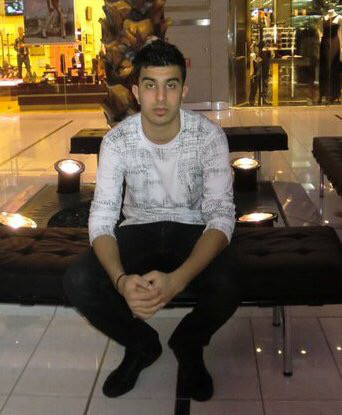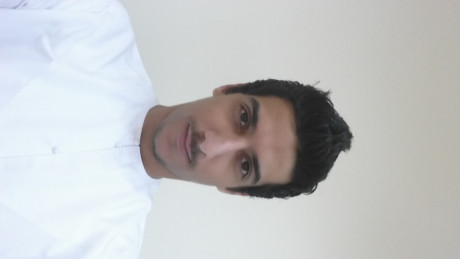
Countering terrorism and extremism is the top priority of all countries and their governing heads. Terrorism is no longer about cast, creed or religion, rather a platform for any organisation to get noticed globally. This sorry state of affair is the latest threat to any government, irrespective of its policies or people. As a result, social media sites have become the most easily available marketing station for such groups. Socialising through these websites have become a common practice since it thrives on the basic need that you get noticed easily while you get connected without any kind of commitment or even expenditure. So, it is only natural that every individual is leaning towards making unknown friends, groups, and to interact with like-minded people to form a larger network. In turn, people get brainwashed, to a large extent and start responding positively, which is exactly what these groups are expecting. Human psychology points that any ideas, if supported by more than, becomes accepted ideas. With that in mind, such groups have thrived and succeeded in spreading their version of theories, statements and also justifications that suits only them! As a result, a lot of innocent people get hurt by the fanatical approach and eventual actions that relates to them. What we must try to do is to make the public aware of such activities online, especially our youngsters who are frequented on such online sites. They must have the awareness to be vary of such organisations and their impact on the society.
From Ms Laxmi Menon
Teacher based in Sharjah
Governments definitely do have a moral duty to protect its citizens from harmful sites that include propaganda messages, however, where do you draw the line on what’s harmful and what’s not? Because of the fact that these extremist groups have deliberately turned to a strong medium like social media to spread their messages, it is difficult for the regular user and authorities to make out what is propaganda versus opinion. These supporters are well aware of how to promote their ‘brand’ and lure people into joining them without making it obvious to the public – it’s all about strategies and because of the great prominence that social media has gained lately, it has become a perfect platform to put these strategies into action. In terms of whether or not the use of social media as a propaganda tool will hurt or help the interests of those in the quest to eliminate such groups, it is kind of a win-lose situation as on one hand it helps keep track of these people and how they work, but on another hand, it can hurt certain people who fall into these traps and decide to join them. Various countries have recently reported an increased number of their citizens deciding to join various extremist groups to fight and this is of course a cause for concern as it affects the security of that particular country. Authorities need to step up their work on finding a solution to this issue as it seems to be getting out of control, and it is not just a threat to certain countries, but to the world.
From Mr Mohannad Al Zoubaydi
Student based in Gothenburg, Sweden
In the case of these recent terrorists groups such as Daesh, Khorasan, Al Nusrat, Al Shahab, Boko Haram etc. I strongly stand on the side of closing any channel of communication that these groups use to promote, and advance, their murderous messages. The danger with these extremist groups is that they use the banner of religion to give credibility to their movement and they use freedom of speech to their advantage but, the same groups have no respect for any alternate views or freedom of speech from others. The expertise shown by terrorist groups to promote their doctrines by using modern social media technology can only be thwarted by blocking all avenues at their disposal. Liberal thought, as promoted by Voltaire, is to be admired, but we live in a society where common sense should prevail and sound judgement calls made to prevent the distribution of these messages of hate. However, the question to those that control the networks is once you start to censor social media, where and when, do you stop?
From Ms Zoe Kaviani
Managing director based in Dubai
I definitely agree that social media should be subject to regulation just as other forms of media are, especially since it has gained so much prominance lately. Because of the fact that these sites are like ‘gold mines’ of information, it increases the need for it to be monitored. People take for granted that they are free to say and do what they want, and especially on the internet as it has become known as the platform to speak out on various topics. However, surely, by enabling extremists to spread their messages freely, can intelligence-gathering efforts track them better but what about the safety of our society and the citizens of the world? It helps intelligence-gathering efforts get a better understanding of the group’s dynamics and what they are up to, but this is done at the cost of manipulating the public sphere and that is definitely a threat to our safety because there are various types of personalities with different mindsets on the internet, which these intelligence-gathering teams can’t track and that is what makes it so hard to figure out who is affected by these messages.
From Ms Fatme Faraj
Pharmacist based in Gothenburg, Sweden
Facebook comments:
How does one censor free speech expressed by an individual? If governments do that, then it shows a lack of confidence. Yes, there has to be some sort of monitoring because social media can always provoke thoughts of violence due to various manipulative views. We have seen how social media has been abused by some vested interests. However, in general, people should have free speech, without any hindrance because that is an honest way to know what the people are up to...
From Mr Tom Thounaojam
Shillong, India
- Compiled by Donia Jenabzadeh/Community Web Editor
















